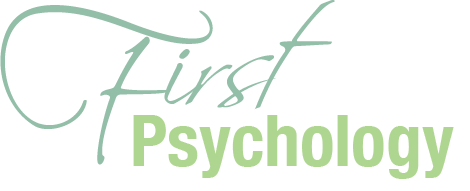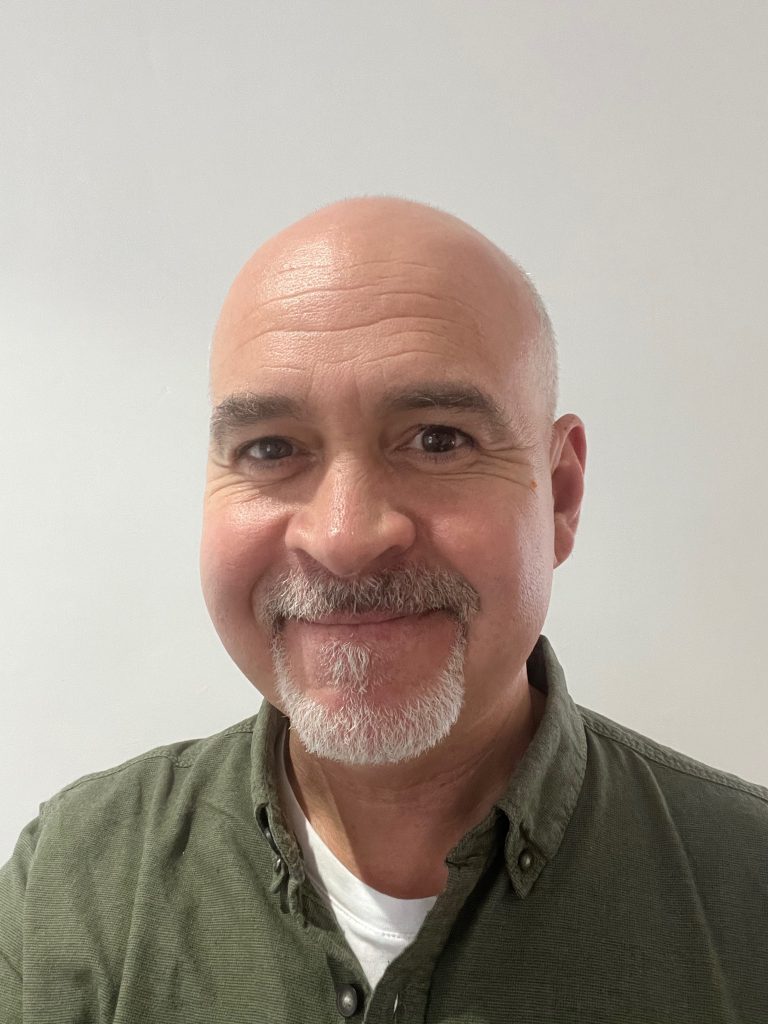
Professor Ewan Gillon is Clinical Director of First Psychology. Formed in 2009, First Psychology now offers many different psychology and counselling services, for a wide range of clients. It operates from 13 consulting venues across Scotland and northern England, with nearly 50 rooms and 150 practitioners.
How did First Psychology begin?
It evolved from my own counselling and therapy practice, which I started around 2001. The ethos behind it was very much to offer a service that was very client-centred, and able to understand the needs of people in different situations in their lives. I was very keen for it to be very transparent, to provide lots of information, and to not be too diagnostic and or expert-led.

“I wanted to allow each client to find what they need, so that I could offer them different types of therapies and different approaches.”
Initially I worked a lot with men – trying to encourage men to consider therapy and to engage more with their mental health. That grew and evolved to eventually become First Psychology, with the same kind of ethos, philosophy and approach. It was initially based in Edinburgh; since then, we’ve expanded throughout Scotland, and are now moving into northern England.
We still very much focus on working with clients and trying to find the best things for clients. Our philosophy is what we call ‘pluralistic’: that means we’ve got different types of practitioners in our organisation. We’re very much a therapy organisation – people from counselling and psychotherapy backgrounds, people from cognitive behavioural therapy and other specialist types of therapy, and also some psychologists. And what we try and do is find the right clinician for every client. We’ve got a services team who help our clients to find what they need.
We’re a fairly broad group of people now: we have around 150 clinicians working across our organisation. We try to take advantage of that by having lots of training in–house. We’ve got a lot of professional and clinical leadership in–house, in areas such as children and families, couples, and trauma.
How do you work out what type of therapy is going to be right for each person?
We start by speaking to the person themselves, or to someone who knows them well. People want different things. Some people want to talk about their experiences, and just have a place to feel heard, and to be valued and validated. Others are looking for techniques and strategies to help them manage particular difficult experiences they might have. So, we talk to the person themselves, and they are the decision–maker.
Then we can say, ‘These are the people we have available who do the kind of things that you are looking for’, and we might suggest that the person meets with a particular clinician. In that initial session the clinician can figure out whether what they do and how they work is going to be helpful for the client.
“The client gets a chance to decide whether they like the person, and whether they feel that they can talk to them and they’re going to meet their needs.”
It’s very much a discussion about the next steps, rather than starting anything. You might establish what that particular clinician can offer, and agree a plan or a process of therapy.
If it doesn’t work in that first session – for example, if the clinician feels that a different approach might be better, or that the client needs something other than therapy – then we help the client find that other thing themselves. We might advise the client, ‘This is where I think you should go’, or we might refer them to someone else at First Psychology.
Is that approach – of having lots of different types of services available – quite unusual?
Yes, it is. What you tend to find is that a lot of services are either clinician–led or theory-led. Either the clinician has got a particular interest, or there’s a particular philosophy that the people who run the service believe in, and that’s basically what you get. Whereas, we think that clients themselves should be making decisions about what they need, in discussion with clinicians.
It’s not the client simply saying ‘I want that’ and getting it. If someone wants something that we think is not actually going to be helpful to that person, or it’s not something that we feel can offer, we’d have a conversation.
So certainly we’re quite unusual. I think that’s why we’ve grown over the years: we’ve innovated and changed in response to demands from people.
You said that earlier in your career you were focused on getting men into therapy. Do you think that there’s still some stigma about that, or find that a lot of people – not just men – are resistant to the idea?
Yes, I think that’s absolutely the case. And I think that there are different types of experiences people have, and different reasons why they might feel apprehensive or unsure about whether therapy is something they want to pursue. Obviously, people may have had bad experiences with authority in the past, and they might in some ways imagine that therapy involves authority.
“There may be some stigma around speaking to people about your problems: people feeling that they may be judged, or that other people might see them as not being able to cope, or something like that.”
And, to be honest, there are just natural anxieties about entering into something like therapy, which may feel very unknown and very uncertain because it’s not something you do every day. So, it’s naturally an activity that is going to be hard for people to start. It’s not an easy thing to do.
How do you try to address these sorts of obstacles?
Over the years we’ve tried different ways of being as open as we can to different types of experiences that people have had, and really thinking through what it is like for someone coming for therapy. In our service team we have an ‘every contact counts’ philosophy. So, if someone phones up but they don’t book a session, we see that as a good thing, not a bad thing. We want to help. And if someone says, ‘Look, I just want information’, that’s fine. We’re not trying to force anyone to do anything, because we want to help people begin in their own minds to break down the barriers.
Not everyone will come to therapy, not everyone is going to be helped by therapy. I mean, it’s a process that I think generally can be pretty helpful, but there may be other things that are equally helpful to someone in a particular set of circumstances. So, again, it comes back to this philosophy of being very client–centred, and wanting to help people find what they need for themselves.
“It’s about understanding that coming for therapy is difficult.”
So we provide information and support, we answer questions, we’re very open and transparent, we offer sessions at different times in the day in different locations, we offer telephone and remote sessions… all of these things making it as possible as it can be for different people to access the service in the way that works for them.
In many ways your philosophy, values and approach are all similar to those of Future Pathways.
Yes, I think so. I think we share a real emphasis on client–centeredness in our way of working.
Obviously, one difference is that First Psychology is a business. We’re independent: we function and we make our living from doing therapy, which is a good thing because it enables us to do it in the way that we really believe in, rather than being beholden to other organisations and so on. The downside, of course, is that we have to charge, and that’s something that we try our best to manage.
But, I certainly think, having worked with Future Pathways, that there is a lot of overlap in the way that we work. Ultimately, I think we’ve both got the same thing at heart, which is that it matters to us that people are helped and given the support that they themselves feel is helpful to them, rather than imposing something on them.
“For people who have had difficult experiences in their lives, having power and control – and feeling that they are valued and listened to – is of immense importance.”
And that is absolutely how we would see every single client who comes through our door.
We’d like to develop our relationship with Future Pathways, and we can see the opportunity for that. And obviously, as we get to know each other better, we’re really responsive and open to any feedback and support that we get from Future Pathways and the people they support. It’s a relationship that’s growing, and that I hope will continue to grow.



